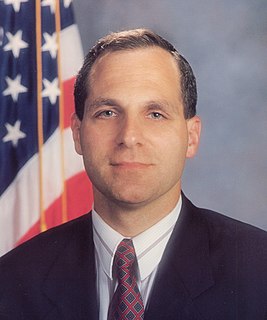A Quote by John Pistole
I particularly recognize that reasonable people can disagree as to what that proper balance or blend is between privacy and security and safety.
Related Quotes
We do have to balance this issue of privacy and security. Those who pretend that there's no balance that has to be struck and think we can take a 100-percent absolutist approach to protecting privacy don't recognize that governments are going to be under an enormous burden to prevent the kinds of terrorist acts that not only harm individuals, but also can distort our society and our politics in very dangerous ways.
In a democracy it is ultimately for us, the citizens, to judge where to place the balance between security and privacy, safety and liberty. It's our lives and liberties that are threatened, not only by terrorism but also by massive depredations of our privacy in the name of counter-terrorism. If those companies from which governments actually take most of our intimate details want to show that they are still on the side of the angels, they had better join this struggle for transparency too.
Our democratic values also include - and our national security demands - open and transparent government. Some information obviously needs to be protected. And since his first days in office, President Obama has worked to strike the proper balance between the security the American people deserve and the openness our democratic society expects.
Our democratic values also include - and our national security demands - open and transparent government. Some information obviously needs to be protected. And since his first days in office, President Obama has worked to strike the proper balance between the security the American people deserve and the openness our democratic society expects.
Human beings have a drive for security and safety, which is often what fuels the spiritual search. This very drive for security and safety is what causes so much misery and confusion. Freedom is a state of complete and absolute insecurity and not knowing. So, in seeking security and safety, you actually distance yourself from the freedom you want. There is no security in freedom, at least not in the sense that we normally think of security. This is, of course, why it is so free: there's nothing there to grab hold of.



































